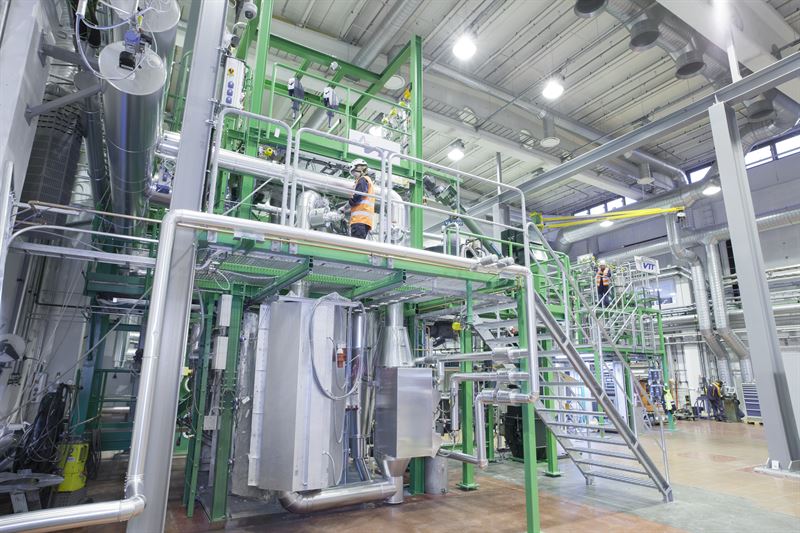
VTT turn waste into biofuels and chemicals
Researchers at VTT Technical Research Centre of Finland Ltd have presented a new gasification-based technique to turn forest industry byproducts into transport fuels and chemicals.
The process that converts bark, sawdust and forestry waste reduces CO2 emissions by 90% compared to fossil fuels, announced the group headed by Esa Kurkela. That’s too little to stop global warming but a good solution to reduce CO2 emissions substantially. A special report published by the Intergovernmental Panel on Climate Change (IPCC) before the COP24 meeting in Kattovice last December said the goal was to stop CO2 emissions by 2050 in order to limit global warming to 2° C.
Similar to a steam cracker process using second generation biomass to produce methanol announced by German BASF last November, the new approach uses gasification to turn wooden biomass into intermediate products – liquid hydrocarbons, methanol or methane – in production units integrated with communal district heating plants or forest industry power plants. Like oil-based intermediates the bio-based products are processed further in oil refineries to produce renewable fuels or chemicals.
The process is based on VTT’s low-pressure, low-temperature steam gasification technology, simplified gas purification and small-scale industrial syntheses. Thanks to the small-scale approach, the heat generated by the process can be used throughout the year, and the process can be fuelled with local waste, VTT said in a press release.
VTT piloted the new gasification process and evaluated the competitiveness of plants based on the technique in the course of the BTL2030 project. According to the analysis, approximately 55% of the energy content is turned into transport fuels and a further 20-25% can be used to provide district heating or to produce steam for industrial processes. The researchers announced the new technique reduces CO2 emissions by approximately 90% compared to fossil fuels.
According to Esa Kurkela, the plan is to build small-scale plants that could run with locally sourced waste and news smaller investments than large gasification plants that could cost up to €1bn. The researchers expect biofuels from domestic waste to cost only €0.8-1/litre of petrol or diesel.
Bioeconomy experts told European Biotechnology if the technology is about throwing biomass into a steamcracker and continue production as before, it is not the bioeconomy they expect to contribute to long-term sustainability.



 adobe.stock.com - ipopba
adobe.stock.com - ipopba BioDlink
BioDlink